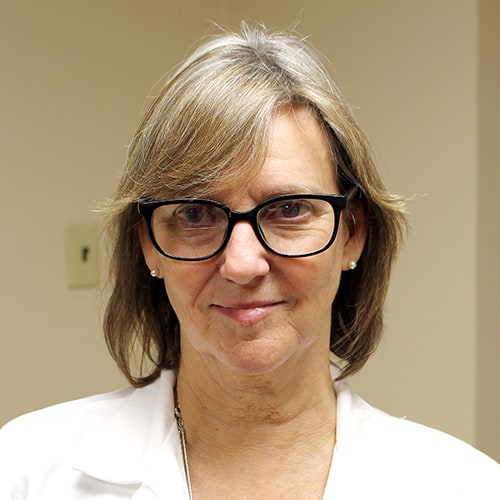It isn’t unusual for parents to hear from their pediatrician about reading to their kids – in fact, the American Academy of Pediatrics has an official policy statement promoting the practice.
But what if doctors could reach parents even sooner, while they’re still planning and preparing for the birth of their child?

Dr. Owen Phillips is spearheading OB CARES to teach patients while they are still pregnant about how to talk, read and sing to their babies.
It’s a question Regional One Health OB/GYN Owen Phillips, MD, FACOG is looking to answer by creating OB CARES, or Obstetricians Childcare and Reading Education Sessions. The initiative will educate patients about the importance of not only reading to their babies and young children, but talking and singing to them as well.
OB CARES, which is funded with grant from the Urban Child Institute, focuses on patients in lower socioeconomic brackets, who make up the majority of Dr. Phillips’ practice.
“This is a novel approach. Pediatricians talk a lot about reading to children, but previously no one thought an OB/GYN office could or would do this,” Dr. Phillips said.
“However, it’s actually the perfect place to provide that message. The goal of the Urban Child Institute is brain development for children ages 0 to 3, so this fell right in line for them.”
So much so that when Dr. Phillips applied for a grant of $8,000, she was awarded $25,000.
She’ll use that funding to start OB CARES in her practice at Regional One Health’s downtown Memphis facility, then study its effectiveness on two fronts.
The project will include pamphlets, videos and posters in patient rooms to share with parents how to effectively communicate with their babies, suggestions like, “Talk about what you’re doing,” “Comment on what they’re interested in,” and “Use pictures and gestures.”
Doctors and nurses will be asked to talk to patients about the materials and give them additional guidance by actually modeling how to read, talk and sing to their babies.
“If a mom walks in here with her 2-year-old and newborn, we’ll get an age-appropriate book and have the nurse hold that newborn in her lap and read to them,” Dr. Phillips said.

“Pediatricians talk a lot about reading to children, but previously no one thought an OB/GYN office could or would do this. However, it’s actually the perfect place to provide that message,” Dr. Phillips says.
“I’ve done it myself before, and many times I don’t even have anything more than a magazine or a piece of paper from the office – but those children are just glued to what I’m doing. All you have to be able to do is look at pictures and talk, talk, talk.”
Dr. Phillips said research shows the more a parent reads to their child, the higher that child will score on vocabulary tests.
She plans to collect more data from OB CARES and hopes to publish her findings and get more like-minded obstetricians nationwide on board with her mission.
She will evaluate the pregnant woman’s knowledge and attitudes about talking and reading to their babies at an early prenatal visit, at their 36-week checkup and postpartum. This will determine whether they retained anything they were taught and what form of communication was most helpful. In addition, the patient will be given a book at her 36-week check-up, and reading to a baby will be modeled for the patient.
Questionnaires postpartum will ask about time spent reading, talking and singing to their baby.
Altogether, Dr. Phillips’ study will also focus on whether the OB CARES model of introducing the importance of reading, talking and singing can be successful in an obstetrician’s office.

Talking, reading and singing to your baby boosts their brain development and their vocabulary, giving them better odds of succeeding at school.
Dr. Phillips hopes the results will boost a mission she and the Urban Child Initiative share: teaching lower-income patients about how helping children build better vocabulary starting at birth will give them a better chance at success throughout their lives.
“We know based on research that children who are of lower socioeconomic status have, by age 3, fewer than half the words in their vocabulary than children of middle or upper socioeconomic status,” she said. “By age 3, the vocabulary and sentence structure predicate if a child in 3rd grade is still ‘learning to read’ or is now ‘reading to learn’. That in turn predicts their likelihood of graduating from 8th grade, and graduating from 8th grade predicts whether they’ll graduate high school or drop out.”
Dr. Phillips said she’s received a great response from the community since she started working on OB CARES. University of Memphis parenting and education experts have offered assistance in crafting the messages, and office staff are enthusiastic about participating in the project.
They’re united in answering a crucial question: “What can we do to make a difference for these kids? We know we can’t wait until they get to 1st grade,” Dr. Phillips said. “It’s a national issue, and I’ve got a lot of local people who are excited about this.”